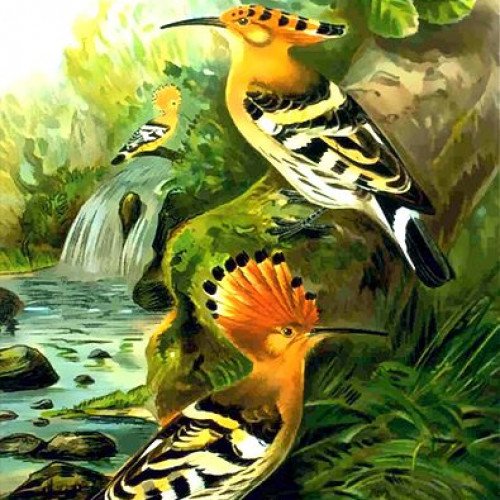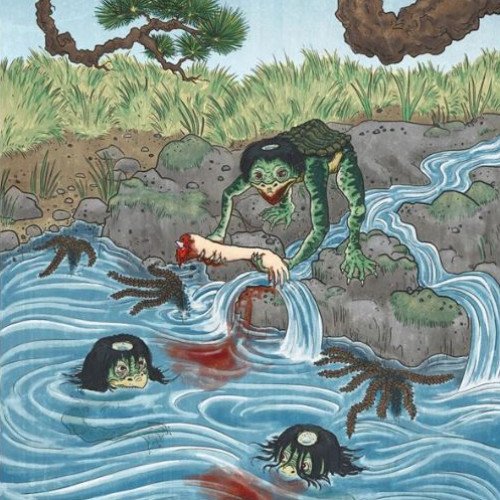Hudhud (mythology) VS Kappa (folklore)

Hudhud (mythology)
Hudhud (English: Hoopoe, Arabic: الهدهد, Turkish: Ibibik, Persian: هدهد, Urdu: ہوپو / ہد ہد) was, according to the Quran, the messenger and envoy of the prophet Sulayman. It refers to the sagacious birds in Islamic mythology, also referred to in The Conference of the Birds, a Persian poem by Attar of Nishapur as the "king of birds". The bird appears twice in the 27th chapter of An-Naml. Hudhud, as described by the Quran played an important role between Sulayman and Queen of Sheba while carrying messages between the two.The word "birds" appears thirteen times in the central religious text of the Muslims, while the word "bird" appears five times, including the Hoopoe twice, which in Islamic belief is often recognized as a creature for communication activities.
Statistics for this Xoptio

Kappa (folklore)
A kappa (河童, river-child)—also known as kawatarō (川太郎, "river-boy"), komahiki (駒引, horse-puller), kawatora (川虎, river-tiger) or suiko (水虎, water-tiger)–is an amphibious yōkai demon or imp found in traditional Japanese folklore. They are typically depicted as green, human-like beings with webbed hands and feet and a turtle-like carapace on their backs. A depression on its head, called its "dish" (sara), retains water, and if this is damaged or its liquid is lost (either through spilling or drying up), the kappa is severely weakened. The kappa are known to favor cucumbers and love to engage in sumo wrestling. They are often accused of assaulting humans in water and removing a mythical organ called the shirikodama from their victim's anus.